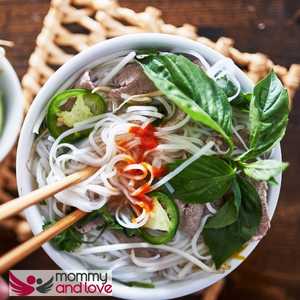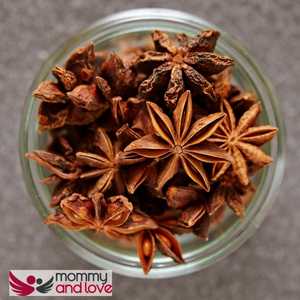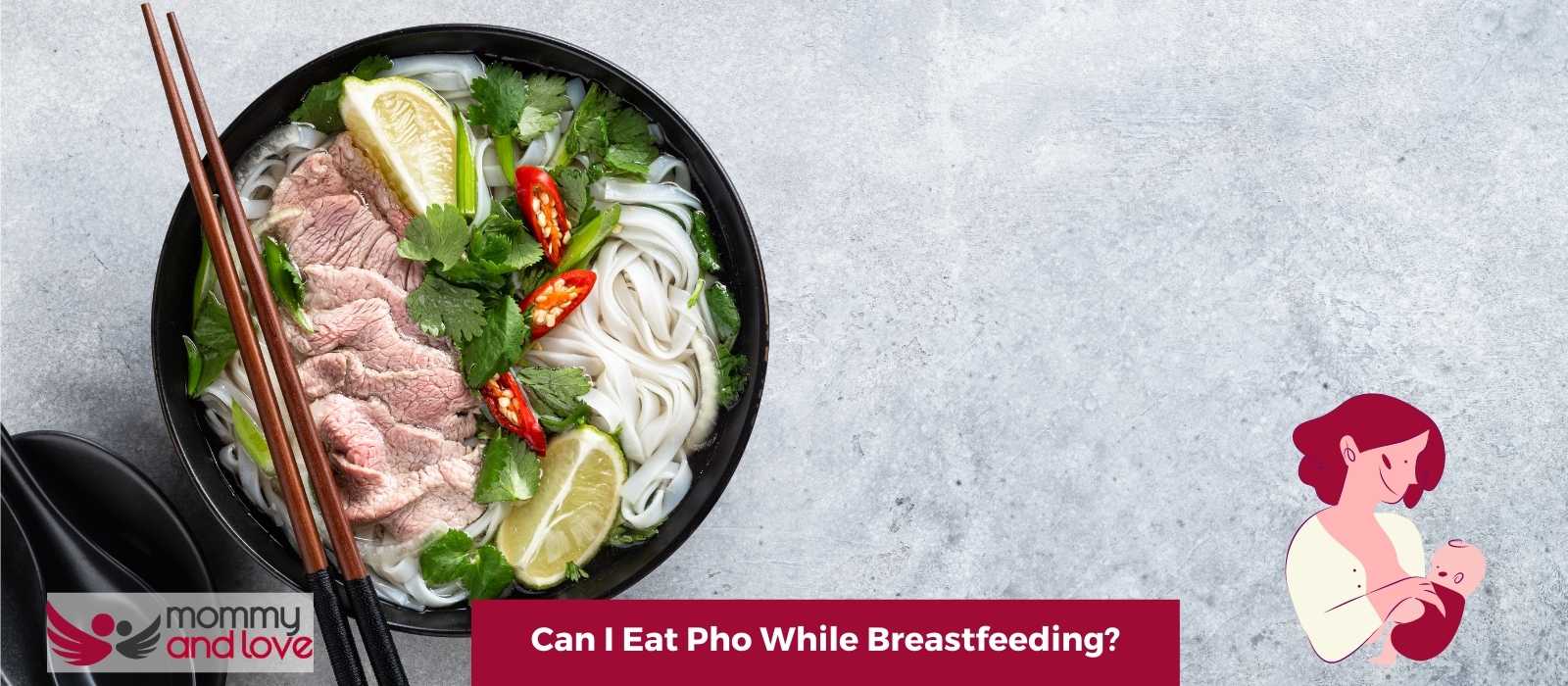Yes! Pho is a healthy and nutritious food that can be eaten by breastfeeding women. It’s rich in protein, carbohydrates, and of course…phos (Vietnamese for delicious soup). You should consume pho as much as you want; however, we do not recommend overindulgence during the first few months after giving birth. During your first month of breastfeeding, you should avoid spicy foods like pho due to the high level of ginger and spices. After this initial phase, please eat pho whenever you want!
What is Pho?

Pho (pronounced “fuh”), is Vietnamese for noodles and broth. The dish consists of rice noodles (bánh phở), which are usually served with either beef or chicken, and a fragrant soup made from boiling bones and spices such as ginger, onions, cinnamon, cloves, cardamom, corianderseed and fennel seed.
This soup is then seasoned with fish sauce (nước mắm). Both the noodles and the broth can be made vegetarian as well, so vegans and vegetarians can enjoy pho too!
How Does Vietnamese Pho Compare to Western Noodle Soup?
Western noodle soups are much heartier than Vietnamese pho. In general, western noodle soups have a wide variety of ingredients, from carrots to soy sauce or beef broth. They also often include noodles that are thick, egg-based semolina flour noodles, which is different from the rice noodles used in Vietnamese pho.
Why Is Pho Healthy?
Pho is very nutritious because it has a lot of protein, complex carbohydrates, and calcium (from the bones used to make the soup). For pregnant women, breastfeeding women, or those who are underweight, pho can be an excellent way to supply your body with much-needed nutrients. According to Vietnamese culture, phostimulates the body’s blood flow and can help a person recover from a hangover!
Can I Eat Pho During Pregnancy?
Yes. The same rules apply for pregnant women as breastfeeding women. We recommend avoiding spices such as ginger during the first month of pregnancy because they may cause nausea or vomiting. After making it past the first trimester, please eat pho as often as you want! So if you love pho there is no reason to avoid it!
You can eat any types of pho! The dish is extremely versatile and has many different versions. Some versions use spices, while others do not. In addition, pho can be made with seafood broth or a more Western-style beef broth or even with chicken.
Does eating soup increase milk supply?
Yes! The soup will provide your body with much-needed nutrients while also increasing milk supply. However, it’s important not to overindulge during the first month after giving birth because you’re still adjusting to this new life experience and need time to recover from pregnancy and childbirth.
What are the benefits of eating pho while breastfeeding?
Pho is very nutritious and rich in protein. It’s also easy to digest. Pho can help increase your milk supply thanks to the spices, but it will not overstimulate your breastmilk production like caffeinated drinks or spicy foods.
I love chicken pho and it was ideal for me to have it during both of my pregnancies. It is also healthy for breastfeeding mothers, but I would recommend limiting the amount of spices to ensure that your milk supply does not increase too much.
Whilst some says it may increase milk production the spices might also cause an allergic reaction in some babies. Nursing mothers should always keep a food diary when introducing new foods and if there is a reaction, then proceed to do an elimination diet to see which foods may be upsetting your baby.
Pho is dairy-free and generally does not contain tree nuts or other foods which are known to cause allergies.
Is Star Anise Safe When Breastfeeding?

The main concern with eating pho is the addition of the spice star anise in it.
Some say it is dangerous whilst others say that star anise helps lactating mothers boost milk production. We recommend avoiding star anise while breastfeeding the first month after the baby is born.
The star anise (badicecae) plant is related to the magnolia tree. Its seedpods are used to make star anise spice, which is popular in Chinese five-spice powder and in Thai curries. The spice contains anethole, a compound also found in anise, fennel (a mild herb that’s often used in cooking) and liquorice. After ingestion, anethole is converted by the liver into d-pinene, which smells of pine. So if you eat pho made with star anise, your baby gets a dose of d-pine through your breastmilk.
Anise/aniseed has similar components. Liquorice contains the compound glycyrrhizin, which is 50 times sweeter than sugar and has medicinal uses. It may be used to sweeten teas for breastfeeding mums, but it’s best to check with your doctor first if you want to take it recreationally (there are concerns around using large amounts of liquorice when breastfeeding and also concerns about glycyrrhizin’s effect on the baby).
Take Away on Pho & Breast Milk
The verdict? Star anise is safe to eat in moderation while you’re breastfeeding but avoid large quantities. As with everything, use common sense and if you have any concerns or questions it’s best to talk to your doctor or midwife. It may help with breast milk production and should be consumed as part of a balanced diet.
If you are hoping to increase your breast milk then read our article on how you can do that with a breast pump. When introducing new foods always wait a week and see if they have made any difference.
So mama, go enjoy your pho and remember everything, including drink, in moderation.

This article was written by Sandra Baker – full time writer and the mother of four amazing kids (including twins!)
She’s also a breastfeeding counselor and has spent years helping new parents learn how to care for their children. When she’s not writing or caring for her children, Sandra likes to spend time reading and taking walks with her husband.




